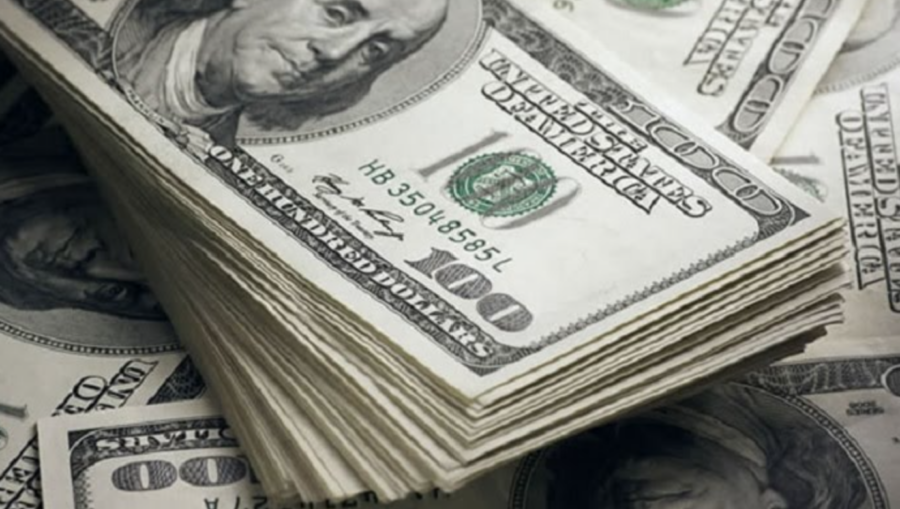Nigeria’s share of global FX reserves falls to 0.26%, as global FX reserves hit $12.3 trillion

Story highlights
- Global forex reserves reached $12.3 trillion at the end of 2023, a 3.5% increase from the previous year, with the U.S. dollar maintaining a stable but historically lower share of global reserves, while the euro, pound sterling, and Japanese yen shares remained consistent.
- Nigeria’s forex reserves declined to $32.3 billion by the end of 2023, representing just 0.26% of global reserves, down from 0.36% in 2022, mainly due to decreased forex inflows and increased outflows.
- The composition of Nigeria’s forex reserves includes Chinese Renminbi and gold, with a significant portion encumbered by currency swap deals and collateral for loans, while global trends indicate a rising use of non-traditional reserve currencies driven by diversification and digital financial technologies.
Global forex reserves hit $12.3 trillion at the end of 2023 representing a 3.5% year-on-year increase from the $11.92 trillion recorded a year earlier.
This is according to the latest data from the IMF’s Currency Composition of Official Foreign Exchange Reserves (COFER).
Nigeria’s forex reserves at the end of 2023 were $32.3 billion representing just 0.26% of the global FX reserves. A four basis points decline from about 0.30% as of 2022-end.
Forex reserves in Nigeria was $36 billion at the end of 2022, however, a combination of a decline in forex inflow and an increase in forex outflows resulted in a decline to $32.3 billion at the end of 2023.
On a quarter-on-quarter basis, Nigeria’s portion of the global FX reserves also declined, with the country’s share standing at 0.28% as of the end of Q3 2023. Nigeria ended Q3 2023 with a FX reserve of $33.32 billion.
There was also a 4.2% increase in QoQ in the global FX reserve from Q3 2023, which recorded a total global FX reserve of $11.85 billion.
Global share of FX reserve
In terms of currency shares, the U.S dollar share of global FX as of Q4 2023 was $6.687 trillion, representing 54.22%, like Q4 2022, where the USD’s share was $6.46 trillion, or 54.21%.
- While the USD’s share of global FX reserves remains quite consistent in 2023, it is a significant decline from its 59% share recorded in Q4 2020. It is a further decline from the 71% share of 1999.
- The Euros share of global FX reserves in Q4 2023 was $2.29 trillion, representing an 18.55% share. Year-on-year, there was a slight 1.6% increase from $2.25 trillion, as of Q4 2022. However, the Euro’s share declined marginally, from 18.9% as of Q4 2022 to 18.55% as of Q4 2023.
- Since 1999, the U.S. dollar’s share of global foreign exchange reserves has significantly declined, while the euro’s share has remained stable, consistently hovering around the 20% mark since the currency’s inception in 1999.
- For Pound Sterling and Japanese Yen, their share in the global foreign exchange reserves has remained consistent, with their share as of Q4 2023 at 4.5% and 5% respectively. Since 1999, the share of both currencies in global foreign exchange reserves has remained consistent around the 5% region.
- According to the IMF, this shift in the composition of the global foreign exchange reserves is linked to a rise in the share of non-traditional reserve currencies.
- The share of the other currencies, including the Chinese Renminbi, Canadian Dollar, Australian Dollar, and Swiss Francs as of Q4 2023 was 10.3%, up from 9.9% as of Q4 2022, and 9% as of Q4 2020.
Composition of Nigeria’s FX reserves
Controversy continues to trail what constitutes a significant portion of Nigeria’s FX reserves. However, previous reports have also tied parts of the FX reserves to Chinese Renminbi and gold reserves.
- According to the most recent publicly available data on Nigeria’s foreign exchange (FX) reserve composition, from the third quarter of 2022, the Chinese Yuan constituted $3.2 billion of Nigeria’s FX reserves.
- Additionally, as of 2023, Nigeria’s FX reserves included 21.37 metric tonnes of gold, valued at approximately $1.6 billion.
- According to Fitch, about 30% of Nigeria’s FX reserves is tied up in currency swap deals with other central banks, and some foreign banks. Thus suggesting that a portion of the FX reserve can be described as unallocated.
Another report by the Economist Intelligence Unit in August 2023, claimed that 40% of Nigeria’s FX reserves is “encumbered”. According to the report, CBN had used the FX reserves as collateral on a $7.5 billion loan from a foreign bank.
Rise in usage of other currencies as FX reserves
The rise in the usage of other currencies as FX reserve currencies comes as quite a surprise, with the US Dollar hitting a level of strength not witnessed in the past decade.
In addition, moves by global blocs such as the BRICS to decouple from the dollar suggest a shift towards a world that relies on the dollar as the global reserve currency.
According to IMF analysts, while private investors are onboarding more USD-denominated assets, central banks around the world are slowly shifting away, and they highlighted certain factors responsible for the shift.
It was noted that these nontraditional reserve currencies are appealing to those who manage reserves because they help diversify investments and offer good returns.
According to the analysts, they have also become easier to trade and manage due to new digital financial technologies like automatic systems for buying and selling and managing liquidity.
The analysts also noted there was no data to back up the idea that US financial sanctions have accelerated movement away from the greenback.
They noted that countries that want to reduce their reliance on the dollar for political reasons do not share details about their reserve holdings with COFER, and they make up a small part of the global reserves.
They highlighted some potential reasons as China’s Renminbi internationalization policy, Russia’s geopolitical tensions, which have caused the country to skip the usage of the USD as a reserve currency, and Switzerland’s accumulation of Euros in its reserves over the years.
According to a 2023 research paper by IMF analysts, Serkan Arslanalp, Barry Eichengreen, and Chima Simpson-Bell, financial sanctions imposed in the past have led central banks to slightly change the mix of currencies they hold in their reserves.
It was noted that they tend to reduce holdings of currencies that could be frozen due to sanctions and increase holdings of gold.



